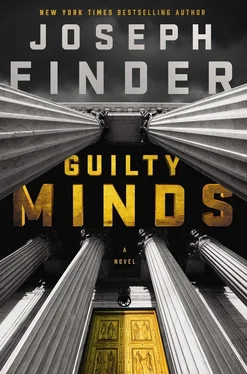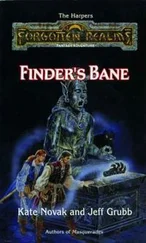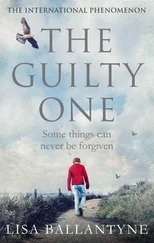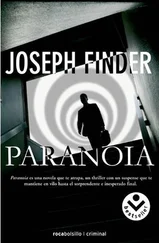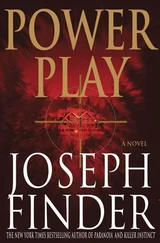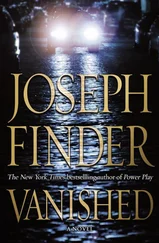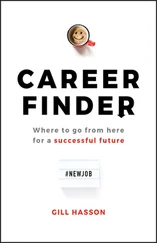And nothing happened.
My chest had grown tight, and I was short of breath and light-headed, and my heartbeat had begun to speed up, not from adrenaline either.
“Nice try,” Merlin said. “But the fire department should be here soon.”
What I did next was out of desperation. I took out the Glock I’d stolen from Curtis Schmidt’s house. I stood up, gripped the gun two-handed, and cocked it. My head was swimming.
“Heller, you’re not serious.”
“Stand back,” I said.
I fired a round into the wiring conduit on the doorframe.
For a moment, nothing happened.
Then the bolts ka-chunked open. I grabbed the door lever and pulled it open. We both dove forward, out of the halon, and gulped air. I stumbled a bit, unsteady on my feet. I could hear sirens in the distance, which meant they must have been close to the building.
Merlin pointed toward a door marked STAIRS. We ripped off our masks so we could breathe better.
And we ran.
I screwed up, Nick,” Merlin said.
“It was a good idea,” I said. “It didn’t work. That’s not screwing up.”
“No, I don’t mean lighting the paper on fire. I thought that was pretty clever. I mean, I left the folder behind.”
“Oh.” I paused. “You did, huh? Yeah, that’s a screw-up, all right.” I felt a surge of hot anger but did my best to conceal it. Merlin looked so dispirited that I added right away, “But not a tragedy. We got the name and her location. We have Ellen Wiley and Upperville, Virginia. I remember that much.”
“Okay,” he said, sounding unconvinced.
We walked down a dark, wide street, moving from pool to pool of yellowish light cast by the sodium-vapor street lamps. Traffic was light, but not nonexistent. It was a little after four in the morning. Dawn was still a few hours off.
Merlin’s mistake had put added pressure on us — “us” being me, Dorothy, and now Mandy Seeger, since I thought of Mandy as being part of our team. Not only had we set off the fire alarm and damaged the strong room door, but at some point soon, someone in the firm would find the misplaced Slade Group file folder, and that would start a clock ticking. The fact that the file had been isolated and removed from the secured file cabinets would tell them it was probably important. That would point a blinking neon arrow at Ellen Wiley’s name. Maybe they’d alert her that someone might be coming for her.
Because someone was.
I allowed myself five hours of sleep. That was about the minimum I could operate on with my cognition fairly intact. At ten in the morning, Dorothy, Mandy, and I gathered in the living room of my hotel suite. I’d given her the name of Slander Sheet’s owner, Ellen Wiley, and she’d made a call to an old friend at The Washington Post .
“So it’s Ellen Wiley, huh?” she said. “Amazing.” She was reclining in one of the big lounge chairs, one leg tucked under the other. She was wearing black leggings and a white button-down shirt. She wore her wavy hair up. I couldn’t decide if she was a redhead or a brunette with coppery highlights.
“The shadowy owner herself,” I said. “What do I need to know about her?”
Mandy was looking over a sheaf of paper. “My friend at the Post pulled a file on Wiley and e-mailed it to me. She’s an interesting case, Ellen Wiley. Extremely rich — a tobacco heiress. She inherited a big chunk of the Philip Morris tobacco fortune. She’s got homes in Upperville, Anguilla, Scottsdale, and a pied-à-terre in Manhattan. I’m pretty sure Upperville is her chief residence. A huge estate on two thousand acres in horse and hunt country. She’s a big patron of the arts. Gives a lot to the Virginia Museum of Fine Arts in Richmond and the Oak Spring Garden Foundation in Upperville. Divorced three times, each time married to a younger man. She’s not a recluse, exactly, but she’s extremely publicity-averse. She stays away from the press.”
“So why does she own Slander Sheet?” Dorothy asked.
Mandy riffled through the file. “That’s a mystery.”
“I need to see her up close. I want to ask her some questions. I’m fairly good at sussing out liars.”
She nodded. “Okay.”
“So where is she now? How do we find out?”
Mandy smiled.
“At her estate in Upperville.”
“You’re sure?”
“She’s hosting a fund-raiser tonight for wounded veterans at her house.”
“So tonight’s out. We go to see her tomorrow.”
“I say we go tonight. You’re a veteran, aren’t you?”
“I wasn’t wounded. Who’s ‘we’?”
She smiled again. “You need a date.”
“I wasn’t invited.”
“What’s ‘invited’?”
“I like your style,” I said.
The drive to Upperville took a little more than an hour, straight down 66 west and then up north to Route 50.
I wore a suit — I had nothing fancier with me, of course, than the suit I’d worn on the way down from Boston — and Mandy wore a white zip-front peplum jacket over a matching skirt. She also looked like she’d spent some time putting on her makeup. She looked terrific, sophisticated and attractive.
I drove, and we fell into easy, companionable conversation. We talked for a while about her time working for The Washington Post , and about my time in Iraq and Bosnia. She seemed to enjoy bumping up against the barrier of what I couldn’t talk about. I could see what a relentless reporter she must be. She told me about all the research she’d done on Justice Claflin when she was writing the piece about Kayla, and I asked if she wouldn’t mind sharing her other files with me.
“Sure. There’s all kinds of goodies in my files.”
“Anything on me?”
“You flatter yourself. Slander Sheet was only interested in the powerful and the famous. The more lascivious, the better. Gideon’s in there.”
“Gideon?”
“Rumored to be something of a dog.”
“He’s seventy-five.”
“Makes no difference. Did you know his sister was raped?”
I shook my head.
“Years ago. Helped shape the man he turned out to be.”
“How so?”
“Apparently the rapist was a white guy. And they never caught him.”
“Maybe there wasn’t enough evidence. Or maybe they couldn’t be bothered.”
“Maybe. And the wife of the White House chief of staff has a shoplifting problem, apparently. And the number-two at the CIA may have plagiarized his Woodrow Wilson School master’s thesis.”
“Do you care about all this stuff? I mean, the gossip?”
“Not especially.”
“Me neither. Did you ever care? Before you got fired?”
In a small voice she said, “It paid the mortgage.”
I let the subject drop.
When we passed Manassas, she said, “So what’s the game plan? Are you just going to ask her if she ordered the murder of Kayla Pitts?”
“You know the game: You go in at a slant. Get her to talk. Suss her out. Get a sense of how much she knows.”
“And when she lies?”
“I get lied to all the time. It’s my business.”
“That must get depressing.”
“Not really. You can learn a lot from a lie. Sometimes more than from the truth. If she lies to us, we’ll learn something, too.”
“But you don’t think she ordered Kayla to be killed, do you?”
“I think she set this train in motion. I think her plan was to use this digital rag Slander Sheet to destroy Jeremiah Claflin, for some reason. She was doing a full-on Hearst — creating the news and then breaking it.”
“You think?”
“Worked with the Spanish-American War, right?” She knew what I was talking about, how at the end of the nineteenth century a couple of newspaper moguls, William Randolph Hearst and Joseph Pulitzer, had their correspondents invent sensational, fictional stories about atrocities in Cuba, which eventually provoked the United States into going to war with Spain. Because Hearst and Pulitzer had their own war going on — over circulation. They did it to sell newspapers.
Читать дальше
